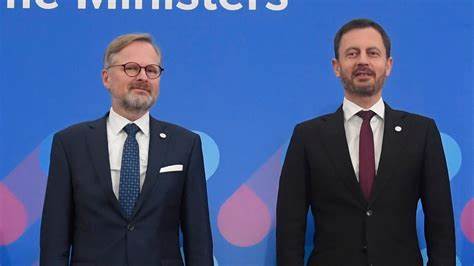Oil & Gas
SLOVAKIA THREATENS TO BLOCK NEW EU SANCTIONS WITHOUT ENERGY SECURITY GUARANTEES
JUMA SULEIMAN

Slovakia’s warning to block the European Union’s 18th package of sanctions against Russia reveals growing cracks in the bloc’s unity over its response to the war in Ukraine. Prime Minister Robert Fico’s insistence on energy security as a precondition reflects deeper geopolitical tensions between core EU policymaking and the realities faced by smaller, Eastern European member states still dependent on Russian imports. While Western European countries push for stricter measures against Moscow, countries like Slovakia and Hungary still reliant on Russian gas, oil, and nuclear fuel view the EU’s proposed phase-out strategy as dangerously out of touch. Fico’s remarks signal that without pragmatic energy alternatives, the EU risks undermining internal cohesion, and handing Moscow a propaganda victory by showing disunity in its sanctions regime.
On the economic front, the Commission’s proposal to tighten the energy-related sanctions, including a lowered price cap on Russian oil and bans on Nord Stream-related transactions, aims to cripple Russia’s revenue streams. However, these aggressive measures could boomerang on vulnerable EU economies. Slovakia argues that the sanctions, without a backup energy plan, would lead to supply shocks, energy shortages, and potential industrial slowdowns, especially in sectors like manufacturing and power generation. The challenge lies in crafting a policy that punishes Russia without triggering economic instability across EU nations with high Russian energy exposure an increasingly difficult balance as the war drags on and sanctions pile up.
From a business standpoint, the implications are broad. Firms across Slovakia and neighboring states fear operational disruptions if Russian energy supplies are abruptly halted. Energy-intensive industries may face rising costs and forced restructuring, while utility providers are bracing for higher import costs as alternative sourcing becomes necessary. Moreover, uncertainty around financial transactions especially those involving Russian-linked banks could delay or complicate cross-border trade and supply chain operations. These risks make clear that without compensatory mechanisms or transition support from the European Commission, the new sanctions could harm local businesses more than the Kremlin’s war chest, threatening to undercut both economic stability and public support for the EU's foreign policy decisions.
